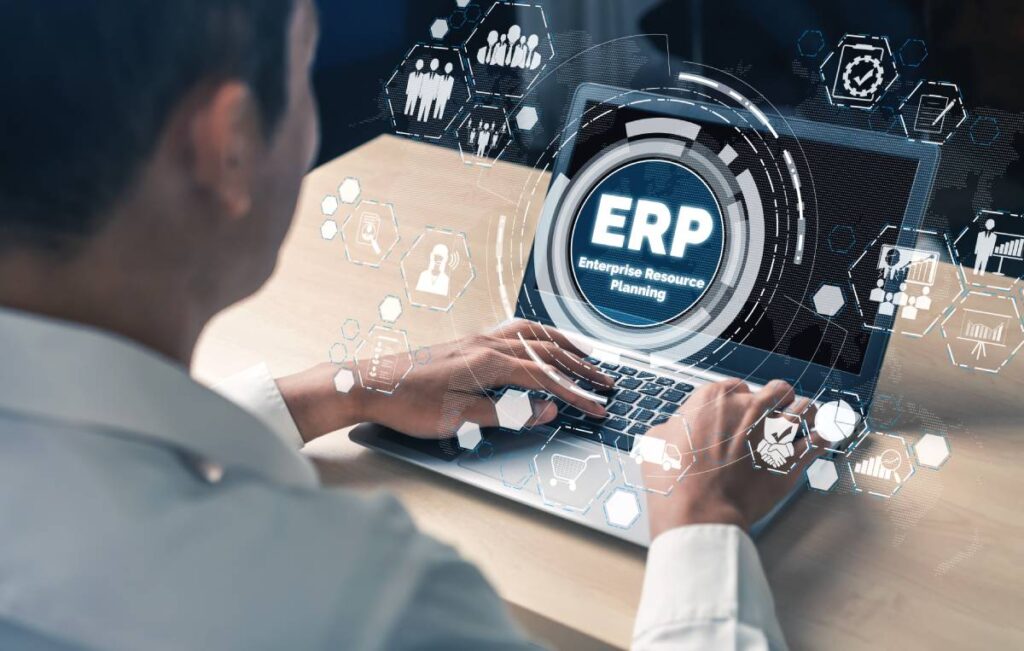
Summary: Turnkey ERP vs. Custom ERP
Choosing between turnkey and custom ERP? Here’s a quick breakdown:
- Turnkey ERP: Fast setup, cost-effective, less flexible
- Custom ERP: Tailored features, scalable, higher upfront cost
- Best fit depends on your business size, goals, and technical needs.
Choosing the right enterprise resource planning (ERP) system can make or break your business operations. Whether you’re managing supply chains, streamlining inventory, or improving human resources and project management, your ERP system needs to fit your business like a glove. One major decision companies face is whether to invest in a turnkey ERP solution or build a custom ERP system from the ground up.
This blog will walk you through the turnkey vs custom ERP debate, helping you decide which option is better for your company’s needs, goals, and growth trajectory.
Understanding Turnkey ERP Solutions
A turnkey ERP system is a pre-built software package designed to work out of the box. These systems come with standard modules for functions like accounting, inventory management, customer relationships, and supply chain management. They require minimal customization and are ready to deploy with basic configuration.
Benefits of Turnkey ERP:
- Fast Implementation: Because the system is already built, companies can get up and running quickly.
- Lower Upfront Costs: No development team is needed, which keeps initial costs lower.
- Proven Functionality: Designed based on industry best practices, turnkey ERP systems are often tested and refined over time.
- Vendor Support: Vendors typically offer ongoing support and regular updates.
Turnkey ERP is ideal for businesses that have standard operations and don’t require many specialized tools. It’s also a great choice for smaller businesses that need to control costs.
Exploring Custom ERP Systems
A custom ERP solution is developed specifically for your organization, either from scratch or through heavy customization of an existing framework. These systems are tailored to the exact needs of your business, including specific functionalities that off-the-shelf software might lack.
Benefits of Custom ERP:
- Tailored Fit: Designed to match your unique workflows and requirements.
- Competitive Advantage: Helps differentiate your business with tools that support proprietary processes.
- Scalability: Easier to scale as your business grows and changes.
- Integrated Systems: Built to fit seamlessly into your existing IT ecosystem.
Custom ERP systems are well-suited for complex businesses or those in specialized industries that need more than just the basics.
Turnkey ERP and Custom ERP Differences
While both solutions aim to streamline business operations and enhance efficiency, the turnkey ERP and custom ERP differences are significant. Here’s a quick breakdown:
| Feature | Turnkey ERP | Custom ERP |
| Implementation Speed | Fast | Slower (due to development) |
| Cost | Lower upfront | Higher upfront, better ROI long run |
| Flexibility | Limited | High |
| Customization | Minimal | Fully customizable |
| Scalability | May require upgrades | Built to scale |
| Technical Expertise | Low | High |
| Maintenance | Vendor-managed | Internally managed or hybrid |

Key Considerations When Choosing an ERP System
Before deciding whether a turnkey ERP or a custom ERP solution is better, consider the following factors:
1. Business Requirements
Ask yourself: Does your business have highly specialized processes or is it fairly standard in operations? The more unique your needs, the more you may benefit from a custom solution.
2. Budget Constraints
- Turnkey ERP is generally more cost-effective in the short term.
- Custom ERP requires a larger upfront investment but often delivers a higher return on investment (ROI) over time.
3. Time to Implement
If you need to get up and running quickly, turnkey is your best bet. Custom ERP systems can take months to a year or more to fully deploy.
4. Scalability and Flexibility
- Custom ERP is built with scalability in mind.
- Turnkey ERP may require new licenses, modules, or even a full upgrade as you grow.
5. IT Resources and Technical Expertise
- If you have a robust in-house IT team or access to skilled developers, a custom ERP is feasible.
- If you lack these resources, turnkey might be the smarter option.
Advantages and Disadvantages at a Glance
Turnkey ERP:
Pros:
- Quick deployment
- Lower short-term costs
- Vendor support and updates
Cons:
- Limited flexibility
- Less control over features
- May require workarounds for unique processes
Custom ERP:
Pros:
- Tailored to exact needs
- Built for long-term growth
- Greater control over integrations
Cons:
- Longer implementation time
- Higher initial investment
- Requires ongoing maintenance
Use Cases for Turnkey and Custom ERP Systems
When Turnkey ERP Makes Sense:
- A small to midsize business with standard operations
- Fast implementation is a priority
- Budget is tight and IT support is minimal
When Custom ERP Is a Better Fit:
- Complex or highly regulated industries
- Business requires specific functionalities
- Long-term cost and scalability are key factors
Improving Efficiency Through ERP
Whether turnkey or custom, the right ERP system should drive improved efficiency across your operations. Here’s how ERP helps:
- Automates repetitive business processes
- Integrates supply chains and inventory management
- Enhances visibility into customer relationships and finances
- Supports better decision-making with real-time data
The Bottom Line: Is a Turnkey ERP or Custom ERP Better?
There’s no one-size-fits-all answer to the question: Is a turnkey ERP or custom ERP better? Each has clear advantages depending on your business’s structure, growth goals, and resources.
If your company needs fast, reliable, and affordable ERP software to manage everyday tasks, turnkey is likely the way to go. On the other hand, if your workflows are complex, your growth is rapid, or your processes require unique capabilities, a custom ERP system may be the smarter long-term investment.
Ultimately, the right decision comes down to understanding your goals, evaluating your technical capacity, and choosing the ERP model that supports sustainable success. With the right strategy and software, ERP can transform how your business operates and competes in the modern market.
Summary: Turnkey ERP vs. Custom ERP
Choosing between turnkey and custom ERP? Here’s a quick breakdown:
- Turnkey ERP: Fast setup, cost-effective, less flexible
- Custom ERP: Tailored features, scalable, higher upfront cost
- Best fit depends on your business size, goals, and technical needs.
